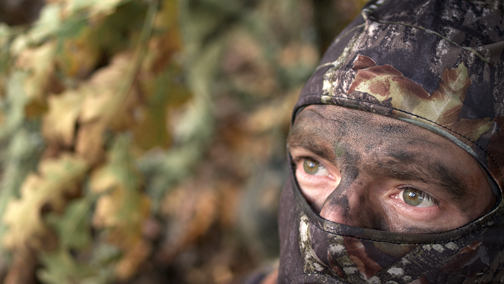
DamNation: Undercover
Why bother making a film about dams if you don’t have footage of one blowing up?
Dam removal, on this scale, was unheard of. This was historic. The dam’s owner and demolition crew denied our requests to film the event. Knowing they had allowed other filmmakers to install remote cameras near the blast zone was infuriating and awoke some dormant issues I have with authority. (Being chased incessantly by rent-a-cops for skateboarding when I was little messed with my head. Those cops didn’t respect that I was doing something creative and positive, and I didn’t respect that they couldn’t run down a 14-year-old in baggy pants.) I took the denial personally, as if the powers that be were saying our film didn’t matter.
The Condit Dam was so old that it was listed on The National Register of Historic Places. It had been wedged into an incredibly steep canyon on Washington’s White Salmon River a century ago. A 90-foot tunnel had been excavated meticulously through the dam’s base, leaving a 10-foot concrete plug that held back an entire reservoir and millions of tons of sediment. Nine hundred pounds of explosives were wired into the plug, ready for blast day. The crews lucky enough to position remote cameras had placed them at a 90-degree angle to the dam, but I felt like a full-frontal view would be more…well, awesome. We had picked what looked like the least sketchy spot for a manned camera blind on the opposite hillside using Google Earth. I equated the mission to robbing a bank — no matter how clever the plan; it was still an awful idea.
The horn that signaled the countdown to the blast echoed through the canyon — the moment I had been losing sleep over for a year. At that point, I had been crouched uncomfortably on a ridiculously steep hillside for 16 hours. No one could know I was there, so I had hiked into the blast zone at night with no light, guided by orange flagging we had tied to tree limb tips a couple of days before. The majority of the night was a suck-fest spent shivering and questioning my judgment — but the last two hours had been the worst. A surveillance helicopter was buzzing the hillside relentlessly, hell-bent on catching any douchebags in the danger zone. I played dead under a camouflage blanket, petrified with anxiety. If I was spotted, the blast would be shut down, and a lot of people would daydream about throwing sharp things at my face.
My phone buzzed, startling me. It was my mom. Bless her heart. She had been crying. I could tell. “I read the explosion could make your ears bleed,” she said. “It’s OK, Mom,” I assured her. “I have ear protection.” When the helicopter finally cleared the area, I had about two minutes to level the tripod; check exposure, audio and focus; and hit the red button. Knowing it took 90 seconds to boot up the camera, I was, to put it gently, shitting myself. All the while, what sounded like a tsunami-warning siren was rattling my already-fried nerves. When the siren stopped, an eerie calm settled over the canyon. I hit record, turned away from the dam and covered my ears. The air seemed to leave the canyon as the dynamite tore through the tunnel like a shotgun. I felt a subtle pressure on my chest — like being inside a subwoofer. The camera was recording. My eardrums were intact. And I hadn’t been treed by a German shepherd. Success.
A few hours later, over a celebratory drink (or three), I remember thinking that I couldn’t wait to share the most idiotic thing I’ve ever done for a shot at Mounatinfilm — my favorite film festival. I mean, if they accept the film.
Ben Knight, along with his producing partner Travis Rummel, runs Felt Soul Media. The team’s newest project, DamNation, premiered in March 2014 at the South by Southwest Film Conference and Festival in Austin, Texas. The documentary, produced in conjunction with Patagonia and Stoecker Ecological, explores dam removal and restoring free-flowing American rivers.


